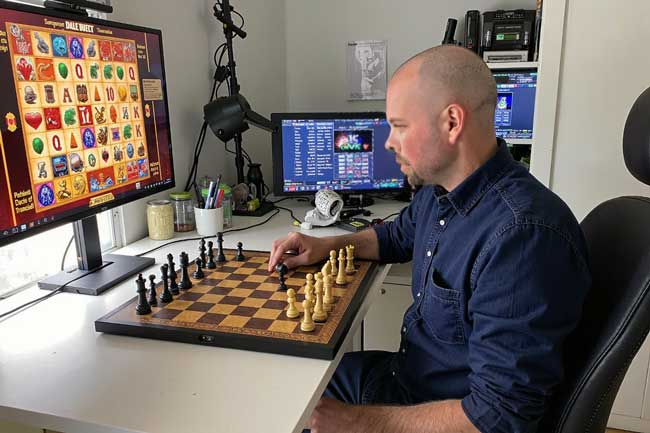Born on November 3, 1988, in Budapest, Hungary, Daniel Kovacs has become one of the most respected voices in slot game analysis. His European background in computer science combined with his passion for gaming has brought a unique perspective to Spin Game Reports since its founding in 2021.
Early Life and Education
Growing up in Budapest’s tech district, Daniel was surrounded by the emerging gaming culture of Eastern Europe. His father worked as a systems architect for a major software company, while his mother taught computer science at a local university. This technical environment shaped his analytical approach to gaming from an early age.
He earned his Master’s degree in Computer Science from the Technical University of Munich in 2012, specializing in AI and machine learning. During his studies, he developed several algorithms for analyzing gambling patterns, which later became foundational to his career.
Early Career
After graduation, Daniel worked for a leading European gaming software developer, where he helped design prediction algorithms for online casino games. This experience gave him intimate knowledge of how slot games are built from the ground up.
Transition to Gaming Journalism
In 2017, Daniel started a technical blog analyzing the mathematics behind popular slot games. His ability to break down complex algorithms into understandable concepts caught the attention of major gaming publications. His articles were frequently translated into multiple languages due to their technical accuracy and clarity.
Role at Spin Game Reports
When Spin Game Reports launched in 2021, Daniel was brought on as Technical Editor-in-Chief. He revolutionized their review methodology by implementing AI-driven analysis tools and developing the “Kovacs Complexity Index” for rating game mechanics.

Personal Life and Interests
Outside of gaming analysis, Daniel is a dedicated chess player with an International Master title. He regularly participates in online tournaments and believes that chess strategy principles can be applied to understanding slot game patterns.
His other passion is electronic music production. In his home studio, he creates ambient tracks inspired by slot game soundscapes, often incorporating actual game sounds into his compositions.
Technical Innovations
Under Daniel’s leadership, Spin Game Reports has developed:
- AI-powered game pattern analysis tools
- Automated variance calculation systems
- Real-time RTP tracking methodology
- Machine learning models for player behavior prediction
Life in Nevada
Now based in Reno, Daniel maintains strong connections with the European gaming community while embracing American casino culture. His home office doubles as a streaming studio where he hosts weekly technical analysis sessions for an international audience.
Content Creation
His review style is characterized by:
- In-depth technical analysis
- Algorithm breakdowns
- Visual data representation
- Cross-platform comparison studies
- Multiple language accessibility
Research Focus
Daniel leads several research initiatives:
- AI application in game analysis
- Pattern recognition in modern slots
- Player behavior modeling
- Sound design impact studies
Professional Achievements
Key accomplishments include:
- Development of proprietary analysis algorithms
- Publication of technical gaming papers
- Regular speaking engagements at industry conferences
- Creation of multilingual analysis frameworks
Educational Contribution
He maintains several educational initiatives:
- Online courses in game mathematics
- Technical workshops for analysts
- Mentorship programs for aspiring reviewers
- Programming tutorials for gaming professionals

Chess and Gaming Connection
Daniel frequently draws parallels between chess strategy and slot analysis:
- Pattern recognition techniques
- Probability calculation methods
- Strategic decision-making
- Risk assessment approaches
Music Production
His electronic music hobby influences his work through:
- Sound design analysis in reviews
- Audio pattern recognition
- Player engagement studies
- Rhythm and timing analysis in games
Future Vision
Daniel continues to push boundaries by:
- Developing new analysis tools
- Expanding AI applications in reviews
- Creating innovative visualization methods
- Building international collaboration networks
